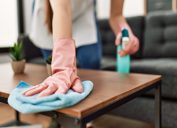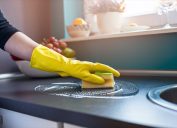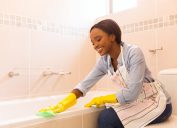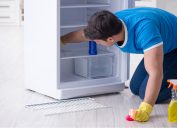25 Things You Should Clean Every Day and How to Do It
Some quick tips on how to keep these items from collecting harmful germs and bacteria.

As the coronavirus pandemic spreads, it's more frustrating than ever to have no control over the cleanliness of surfaces and things you encounter outside of your home. But instead of stressing out over that, it's helpful to concentrate on keeping your own space clean. You may think you're covered by wiping down your kitchen counters and soaping up your bathroom every once in a while, but there are many more spots around the house that could use a daily once-over—and rarely, if ever, get one. To keep you and your family healthy, we rounded up this list of the things you should clean every day. Some of them may surprise you.
1
Your keyboard

You probably type on your computer every day, so it's no wonder that the thing is crawling with bacteria. According to a 2018 study published in the International Journal of Environmental Research and Public Health, your keyboard may even be teeming with staphylococcus aureus, which can cause potentially-serious infections in humans.
So, make sure to get out any grime lurking between your keys with a computer duster and give your keyboard a daily cleaning with an electronics-safe cleaner or rubbing alcohol, making sure not to saturate the cloth you're applying it with.
2
Your bed

While washing your bedsheets and pillowcases every day may be overkill, it's important to clean up your bed on a daily basis for both your mental and physical wellbeing. A 2016 study by Amerisleep found that your pillowcase alone has three million bacteria per square inch by the end of a single week, with that number jumping to 11.96 million by the end of a month. So, at the very least, you should wash your bedsheets once every seven days.
3
Your water bottle
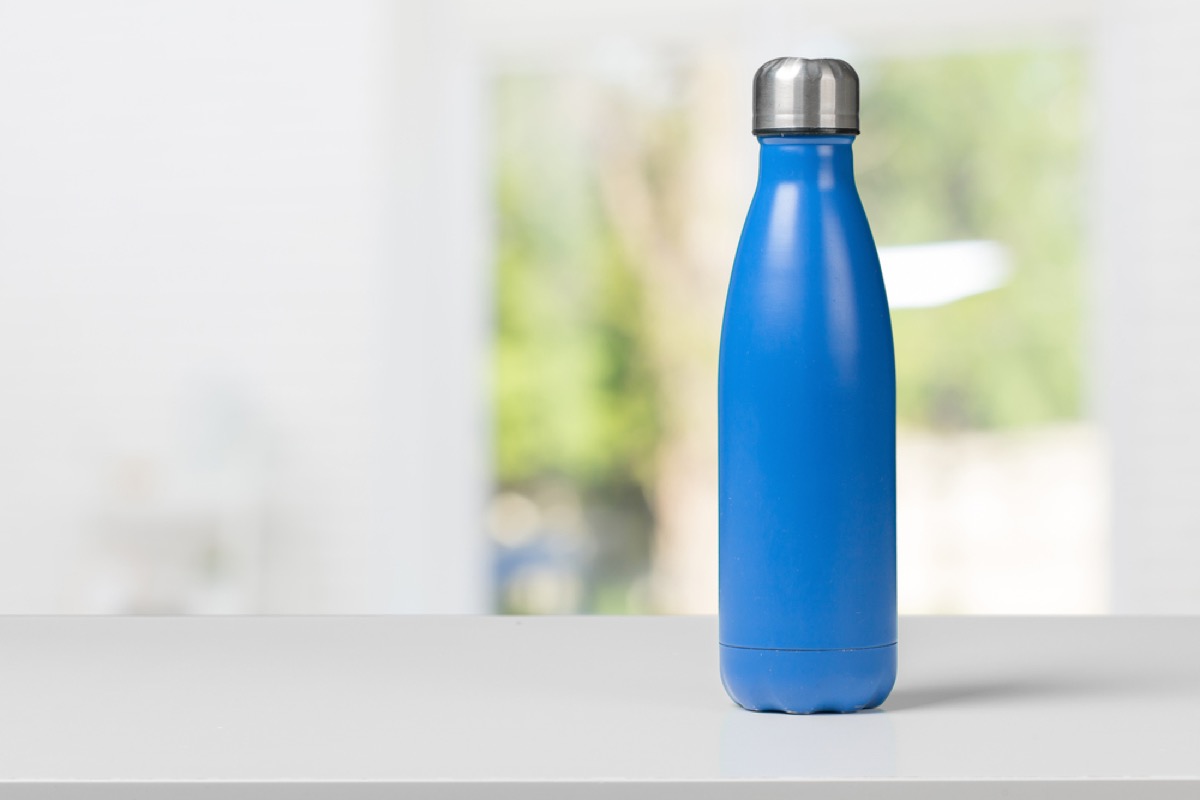
Any attempts to improve your health with a reusable water bottle might just backfire if you're not cleaning it on a daily basis. Research published in the Annals of Civil and Environmental Engineering in 2017 revealed that the average amount of bacteria in adults' reusable water bottles was 75,000 per milliliter. If left uncleaned, that number had the potential to reach up to two million per milliliter within a single day.
If you want to keep your bottle clean, just make sure to empty the water bottle at the end of every day and wash it with a mixture of antibacterial dish soap and hot water. Or, if you have one, just pop it in the dishwasher. And if you want to reduce the growth of bacteria in the first place, try copper bottles, which have a naturally antimicrobial effect.
4
Your rings

Your wedding ring's primary purpose is to serve as a symbol of your commitment to your spouse. But it's also apparently a breeding ground for some seriously gross bacteria.
In 2009, researchers at the University of Oslo discovered that wearing rings increased the total number of bacteria on healthcare workers' hands. In fact, individuals wearing rings were twice as likely to have Enterobacteriaceae (a group that includes E. coli and salmonella) on their hands than those who didn't wear jewelry. Fortunately, simply putting those rings in a mixture of hot water and antibacterial dish soap or jewelry cleaner can help reduce the bacterial load.
5
Your phone
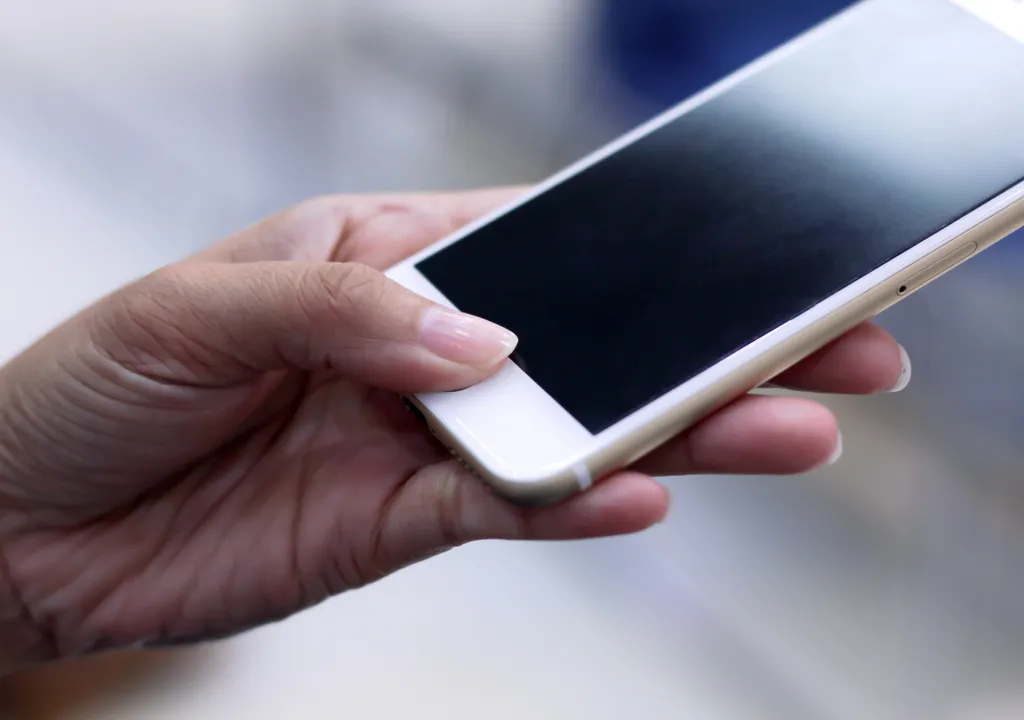
Hundreds of times each day, you touch your phone—or hold it to your face. Needless to say, the thing could certainly use a regular cleaning. So, just how dirty is your device? According to a 2017 study of healthcare workers' phones published in the Iranian Journal of Micobiology, 46 percent of participants had six different types of bacterial growth on their phones. Acinetobacter baumannii, a major source of infection in hospitals, and antibiotic-resistant staphylococcus aureus were among the most common.
However, a simple wipe down with a cloth dampened (not drenched) with rubbing alcohol can quickly kill much of the unwanted bacteria on your phone.
6
Your coffee cup

Microbiologist Dr. Charles Gerba told Time that approximately 20 percent of coffee mugs harbor fecal bacteria, and it gets worse: The amount they carry can grow significantly if you're only rinsing them out instead of giving them a thorough cleaning.
To keep the growth of bacteria at bay, put your cup in the dishwasher or wash it with hot water with antibacterial dish soap using a dish brush that's been recently sanitized. And about those dish brushes and sponges…
7
Your sponges
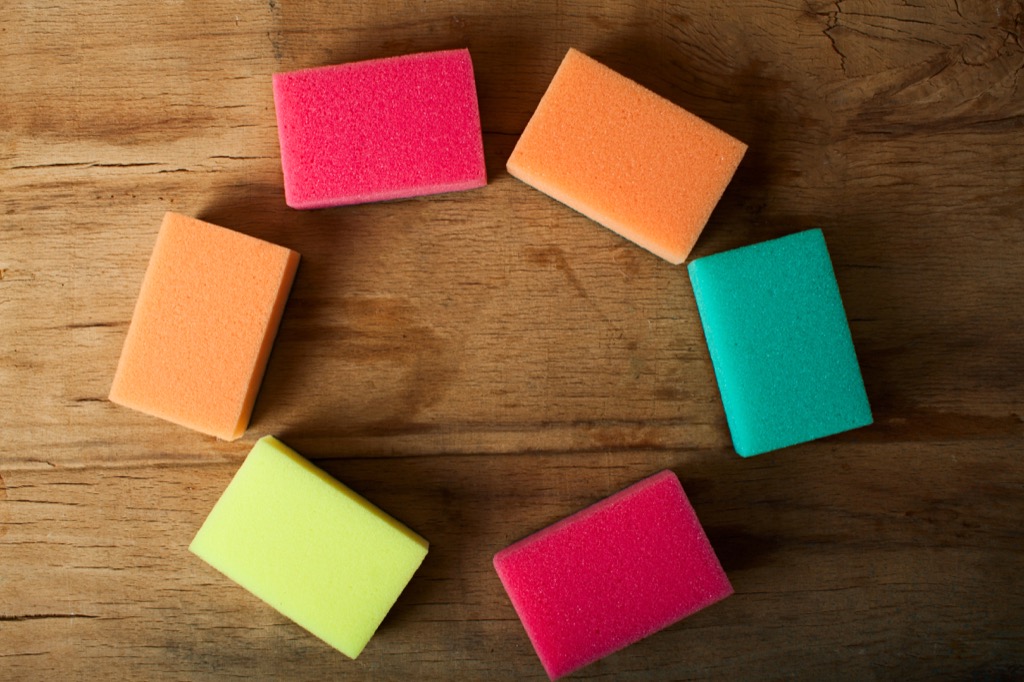
Sponges aren't exactly spotless—actually, far from it. You may use them to clean your dishes and wipe down your countertops, but if you're not cleaning your dish sponge on a daily basis, all you're doing is spreading germs around your house. According to research published in the International Journal of Food Microbiology in 2003, kitchen sponges are frequently contaminated by pathogens like E. coli and salmonella. And you can easily transfer these potentially harmful bacteria onto other surfaces when you use them to clean.
Fortunately, killing the bacteria on your sponge is relatively simple: Just pop it in the dishwasher for a full wash and dry cycle and you'll kill about as many pathogens as any cleaning method can. According to Good Housekeeping, you can also disinfect your sponge in the microwave. Simply saturate the sponge in the microwave with water, then heat it on high for one minute to two minutes.
8
Your remote control

If you want to keep your home a whole lot cleaner, make a point of wiping down your remote controls at the end of every day. Research presented at the 2012 general meeting of the American Society for Microbiology revealed that remote controls are the most germ-laden items in hotel rooms, with fecal bacteria appearing on 81 percent of remotes studied. Luckily, all it takes is a little rubbing alcohol on a clean cloth—or even just an antibacterial wipe—to kill most of those icky germs.
9
Your doorknobs
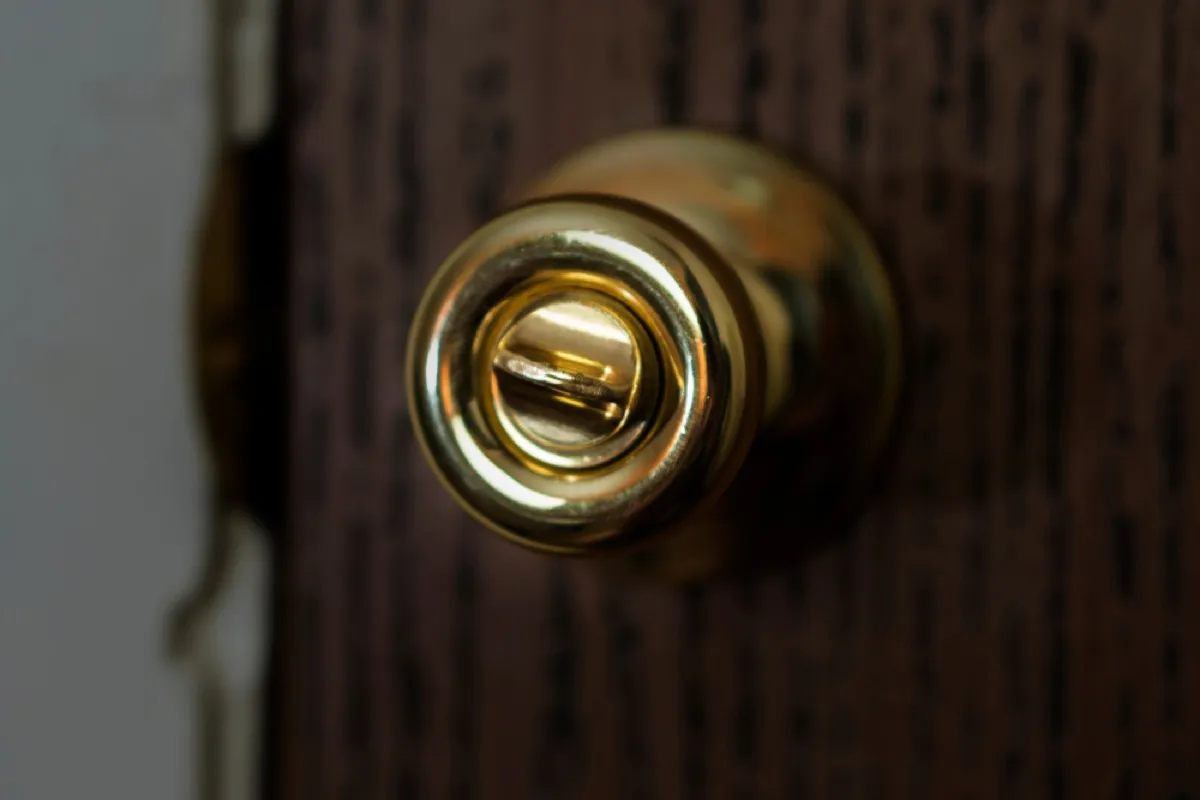
If you think those people using their elbows or paper towels to open doors are being paranoid, think again. According to a 2012 study published in the Continental Journal of Medical Research, among 180 door handles and knobs swabbed by researchers, nearly 87 percent had bacterial contamination, with 30 percent testing positive for staphylococcus aureus, 16 percent testing positive for E. coli, and 26 percent harboring Klebsiella pneumoniae, bacteria associated with the development of pneumonia and bronchitis.
And while that may sound scary, a simple wipe with an antibacterial cleanser can take care of the bulk of that bacteria for you.
10
Your shower head
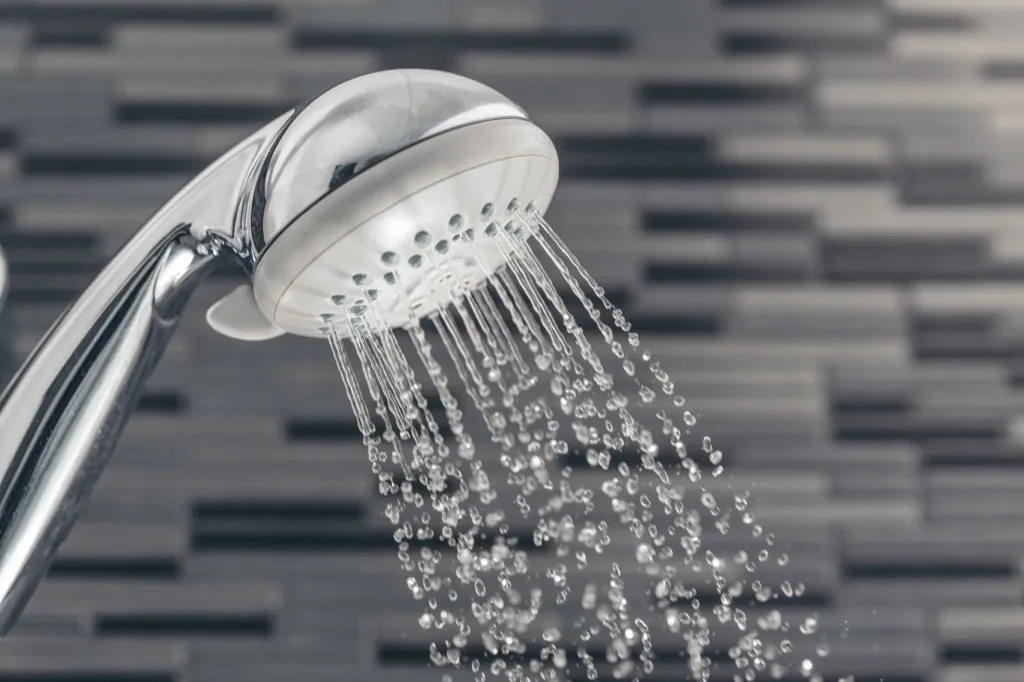
If you think that your shower head is a self-cleaning entity, you're sadly mistaken. In fact, to keep everyone in your household healthy, it's well worth it to wipe your shower head down with an antibacterial cleaner or bleach solution on a daily basis. So, what do you risk if you choose not to? Well, research published in 2018 by the American Society for Microbiology links the bacteria commonly found on shower heads to an increased risk of respiratory illnesses.
11
Your bath towels

Just because your bath towels dry off your supposedly clean body doesn't mean that they're clean themselves. Dr. Gerba's research indicated a 90 percent rate of coliform bacteria contamination on bath towels, with approximately 14 percent of the towels harboring E. coli.
That's because the warm, moist air in your bathroom is the perfect environment for such bacteria to multiply, and, if you're sharing towels, you can also pass along conditions like ringworm and impetigo. To ensure your towels are clean and ready for use, wash and thoroughly dry them on high heat to beat any lingering germs.
12
Your loofah
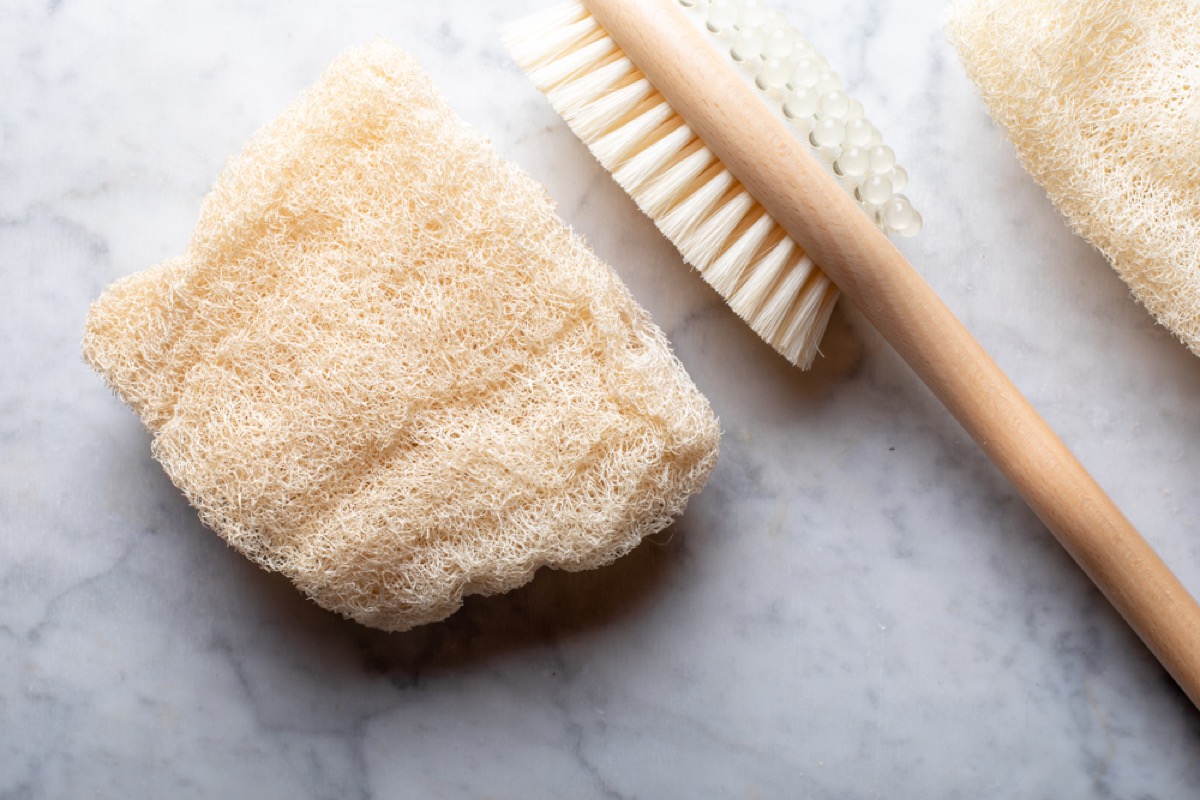
Exfoliate with a loofah and you could be adding more bacteria to your skin's surface than you're sloughing off. An oft-referenced 1994 study published in the Journal of Clinical Microbiology revealed that loofahs carry pseudomonas, xanthomonas, klebsiella, enterococcus, and group B streptococcus bacteria. And since loofahs are made of natural material, rendering them difficult to disinfect, you're better off with a regularly laundered washcloth or exfoliating silicone mitt (which can be sterilized with boiling water).
13
Your bathroom sink and counter

You use your bathroom sink to wash your face and brush your teeth, but if you're not cleaning it or its surrounding counters on a daily basis, you could be doing yourself a disservice.
According to recent research conducted by TravelMath, bathroom counters in hotel rooms harbored an average of 1,288,817 colony-forming bacterial units—and they're cleaned professionally on a regular basis. That means your home sink could have even more bacteria. Still, there's no huge need to fret: A daily wipe down with a bleach-and-water solution can kill off those bad bacteria in an instant.
14
Your sink trap
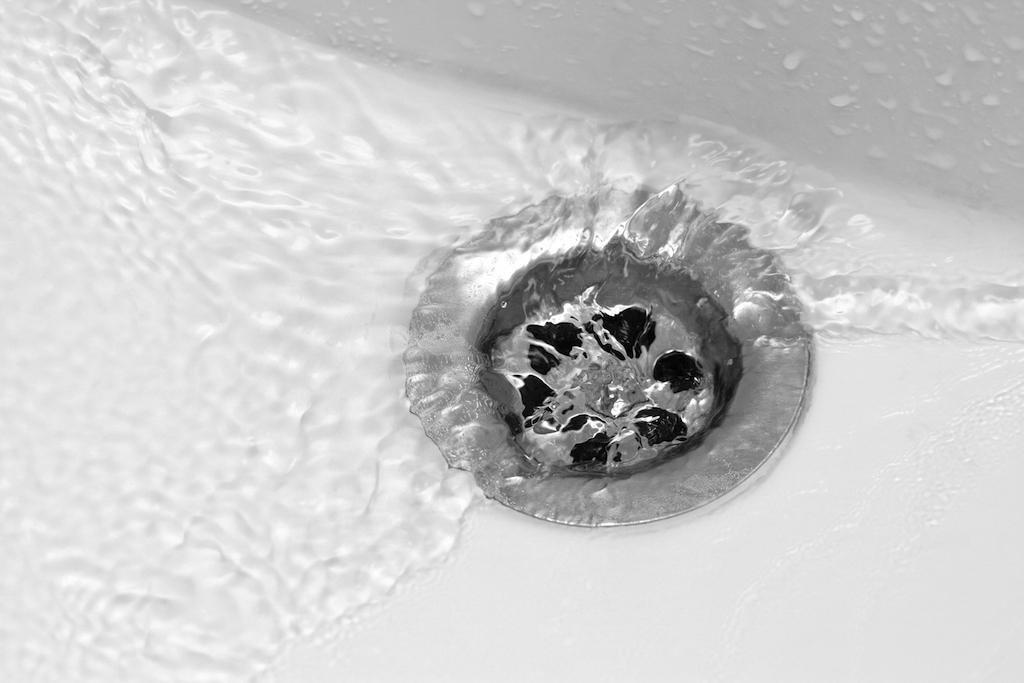
Those germs you're washing off your hands aren't necessarily going straight down the drain; many stick around your sink trap. According to research published in Infection Control & Hospital Epidemiology in 2018, the source of an outbreak of antibiotic-resistant bacteria at an Israeli hospital was traced back to the facility's sink traps. Running water caused the bacteria harbored therein to become airborne.
To keep this from happening at your home, clean your sink with antibacterial cleansers on a daily basis or make your own bleach-and-water solution to pour down the drain.
15
Your razor

A "clean shave" may not be as clean as you think. A 2019 study published in European Radiology found that beards contain "significantly higher" amounts of bacteria than dogs, including potentially-harmful varieties, like staphylococcus aureus. When you shave, some of those bacteria are transferred onto your razor, and your bathroom's frequently damp environment creates the perfect atmosphere for them to multiply.
So, how do you take care of this potentially infectious problem? Replace those blades regularly and give your razor a soak in a solution of half white vinegar and half water to kill off any lingering bacteria.
16
Your toothbrush
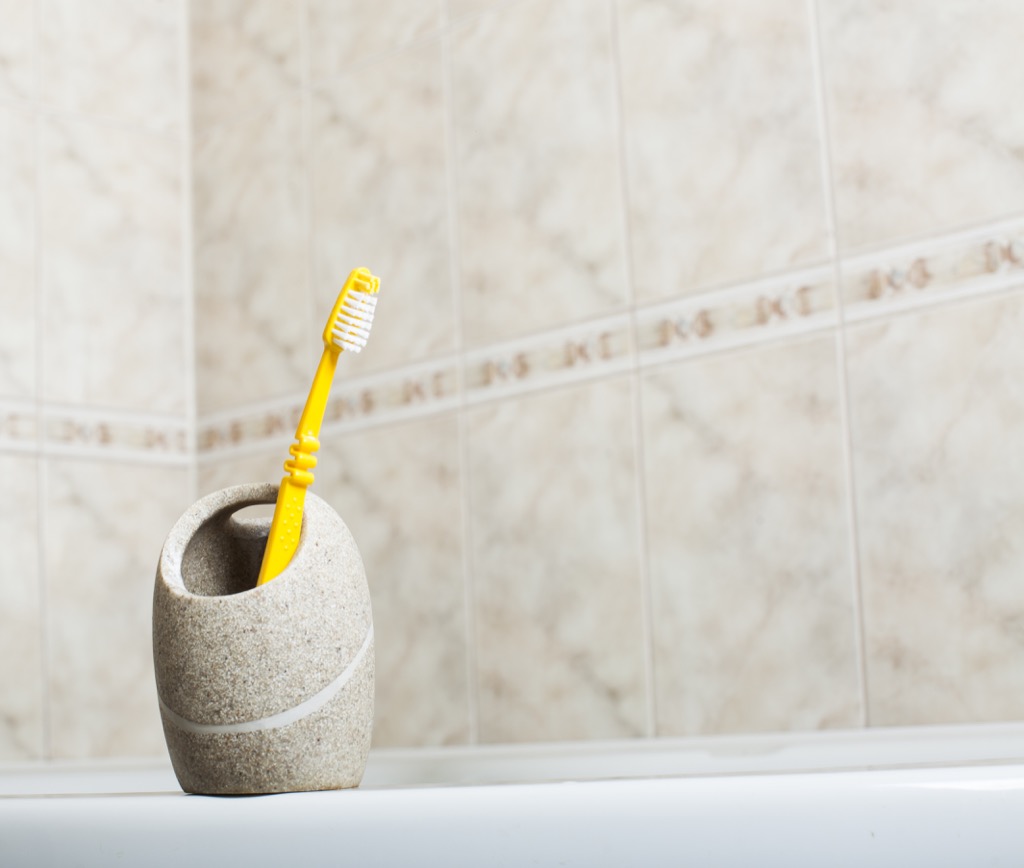
You use your toothbrush to clean food particles, plaque, and other grime off your teeth, so it should come as little surprise that it's a hotbed of bacterial activity. A review of research published in Nursing Research and Practice in 2012 suggested that toothbrushes are routinely contaminated with things like staphylococcus aureus, E. coli, and pseudomonas. On top of that, traditional storage techniques—like putting a toothbrush on a bathroom counter or covering it with a cap—increase bacterial growth.
However, there's a simple fix right in your bathroom: Soaking your toothbrush in antibacterial mouthwash can significantly decrease its bacterial load.
17
Your kids' bath toys

Just because they spend their time sitting in suds doesn't mean bath toys are clean as a whistle. Think of it this way: Bath toys actually spend a good portion of their day soaking in bacteria-laden water. Research published in Biofilms and Microbiomes in 2018 revealed that 58 percent of bath toys contained fungi, while one-third of bath toys had both listeria and L. pneumophila bacteria, the latter being a primary cause of Legionnaires' disease.
18
Your kitchen counters

To put it simply, chances are high your kitchen countertops are disgusting. According to 2011 research from the National Sanitation Foundation (NSF), kitchen counters are among the dirtiest parts of a house, with more than 30 percent harboring potentially harmful coliform bacteria.
However, a little soap and water followed up with a diluted bleach solution can ditch those germs once and for all.
19
Your dishes
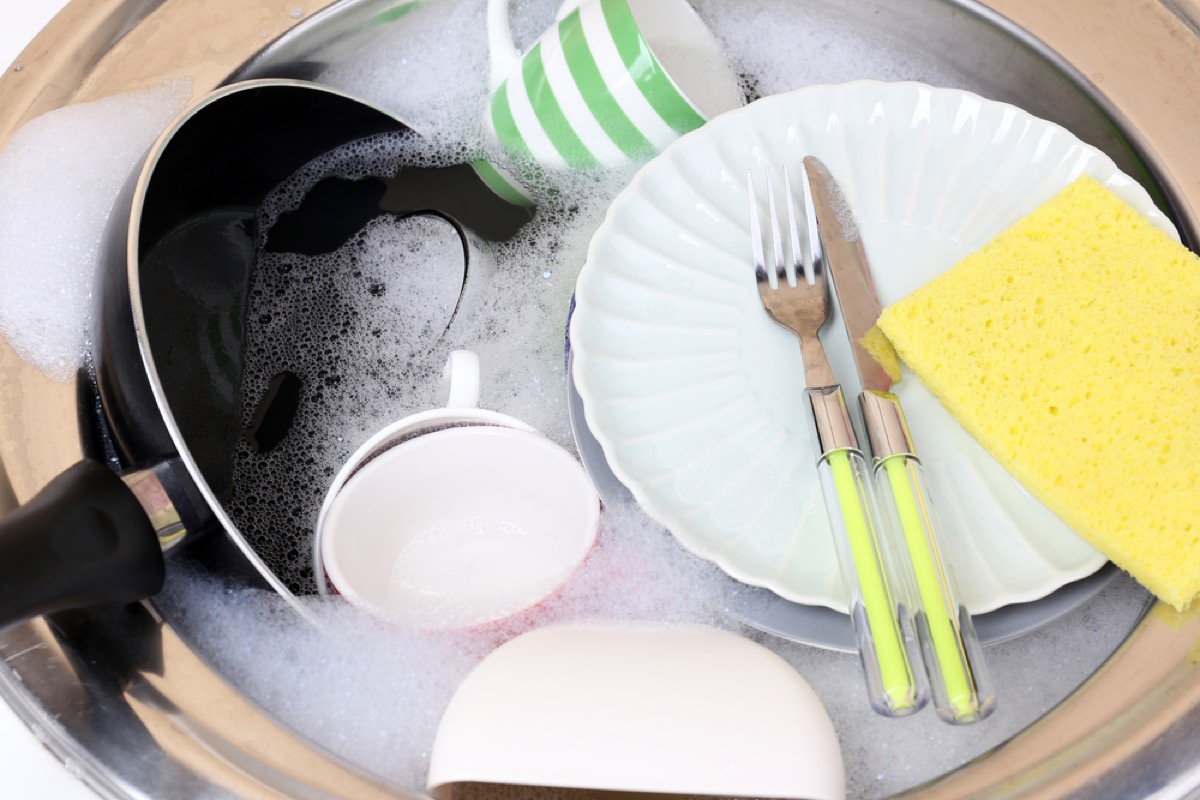
If you want to keep your whole house cleaner, it's important to not let dishes languish in your sink for days at a time. The combination of food particles and warm water in your sink create the perfect breeding ground for bacteria. In fact, the NSF found that kitchen sinks had the second highest bacterial concentrations in the whole home.
So, whenever possible, scrape your plates and load them directly into the dishwasher or wash them by hand immediately after use. Then, make sure to wipe down your sink with an antibacterial cleaner or a mixture of bleach and water.
20
Your cutting boards

Leaving those just-used cutting boards out on the counter without washing them is a recipe for bacterial growth. According to a 1997 study at France's National Center for Veterinary and Food Studies, there's a wealth of bacteria clinging to your cutting board—especially if it's a wooden one. Worse yet, common means of removing food from cutting boards, like scraping, only gets the bacteria to burrow deeper. So, be sure to hand wash your cutting boards on the daily!
21
Your dish towels
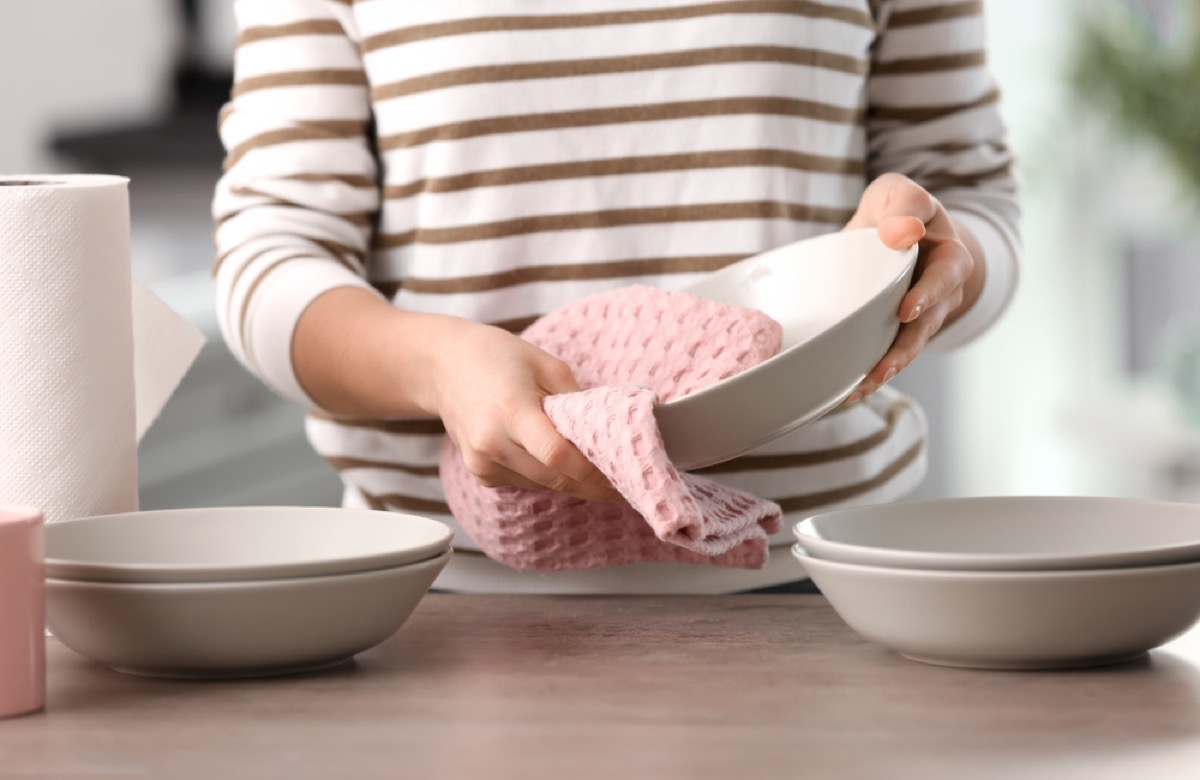
If you're not washing your dish towels every day, you could be putting yourself at risk for illness. Since they're regularly used to dry hands, clean up countertop spills, and wipe down surfaces, dish towels pick up huge amounts of bacteria on a daily basis. The NSF even listed them as the most germ-laden item in a typical home, sharing the top spot with kitchen sponges.
To get them clean, make sure you're running them through a sanitizing cycle in your washing machine and thoroughly drying them.
22
Your coffee maker
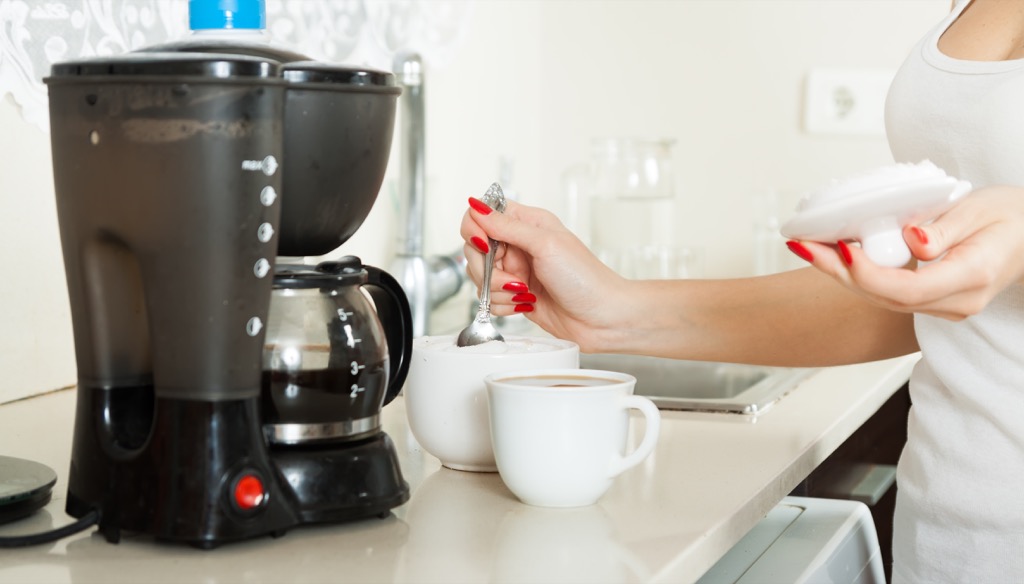
If you're using your coffee maker every day, you should be cleaning it every day, too—just like you would any other food preparation tool. The reservoir in coffee makers takes the fifth spot on the NSF's household germs list; its dark, damp environment is a perfect breeding ground for mold and bacteria.
To keep it clean, run a vinegar and water solution through it. And then use the same solution to wipe it down when you're done using it for the day.
23
Your cat's litter box
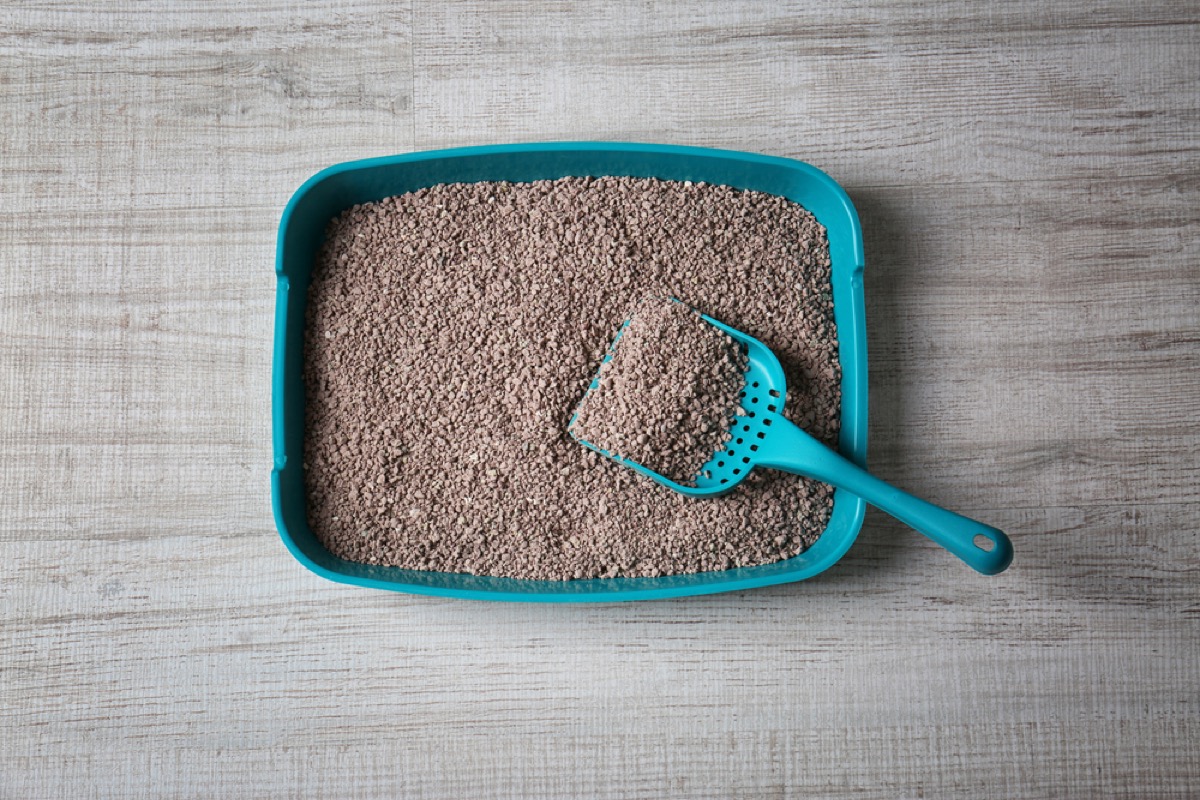
Keeping your pet comfortable and healthy means more than supplying treats and belly rubs. If you have a feline friend in your house, it's important that you keep their litter box clean by scooping it on a daily basis. If you don't, you're not only potentially creating a source of stress for your cat, you may be inadvertently encouraging them to treat anywhere else in your house—from carpets to cardboard boxes—as their de facto litter box instead. We needn't explain how gross—and unhealthy—that could get.
24
Your windowsills

Anyone who enjoys keeping their windows open on a temperate spring day would be wise to give their windowsills a daily wipe down. Open windows can contribute to higher-than-average indoor pollen levels. Considering that ragweed pollen season is increasing in duration across the U.S. and that there's been a potentially related uptick in environmental allergies and asthma, it's important to keep any surfaces that could harbor high pollen counts clean.
25
Your steering wheel

Before going out for a drive, you might want to consider wiping down your steering wheel first. A recent study from CarRentals.com revealed that the average steering wheel harbors 629 colony-forming bacterial units per centimeter—four times the amount found on an average public toilet seat! The solution? Give your wheel a wipe down with an antibacterial cleanser, change your filters regularly, wipe down your vents, and vacuum your car often.
Additional reporting by Sage Young.
